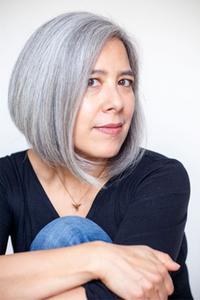 |
|
| photo: Heather Weston | |
In My Education, you said you wanted to write a book about being young and making mistakes. In Trust Exercise you've followed that idea but ventured even younger. What made you decide to explore the high school experience?
It wasn't my ancient memories of being a student but my more recent experiences of being a teacher that got me thinking about how radically our expectations of the student-teacher relationship have changed, over just a handful of decades. One sign of this is the proliferating number of misconduct charges against teachers, concerning events sometimes decades in the past. For some observers, charges like that invalidate themselves--if something happened way back then, these observers will say, why didn't the alleged victim come forward? The people who make such objections simply can't grasp the speed and the scope of the paradigm shift we're undergoing, regarding all relationships between people in disparate positions of power, the student-teacher relationship being just one. And so it's both the shift itself, and the clashing values that shift has laid bare, that I wanted to explore in the novel.
What did you find most challenging about exploring those characters at that period in their lives?
Being true to the in-betweenness of that age--the really unique life situation of being both a child and an adult, of requiring both protection and freedom, of having the agency to make one's own decisions and at the same time operating at such a disadvantage, experience-wise, while making those decisions. When I was a teenager I truly felt myself to be capable of making choices that, when I look back on them now, horrify me. It's such a charged and ambiguous and important time of life, and yet so confusing that as a society we're constantly changing our minds about how to manage it, on behalf of the people actually living it. Witness not just our clashing laws--about when people can drink, serve in the military, drive cars, or consent to sex--but all our larger arguments about the very nature of adulthood, of childhood. I wanted to be clear, in the book, that there aren't bedrock answers to these questions.
Did your experience writing My Education help you write Trust Exercise?
Alas, no. Every time I start a novel it's as if I'd never written one before.
Prior to these two novels, you wrote historical fiction. How does writing the historical novels compare to these two?
Historical research is, for me, a real crutch; I lean on it for plot developments while I'm writing, and for a pretext to procrastinate when I don't feel like writing. And so, in a lot of ways, the two novels for which I didn't do a lot of historical research were the hardest for me to write.
The drama teacher in Trust Exercise puts his students through "trust exercises" and you as the writer put your reader through trust exercises. Where did that come into the process of writing this book?
The question of reliability bubbled up out of the writing itself and sort of oozed its way all over the book. The real world also played a role. I was working on this book while teaching on the Yale campus in the fall of 2015 during historic campus turmoil; and then the fall of 2016 came along. It wasn't possible to write without thinking about the privilege inherent in any act of narration, the people silenced, and what it might look like if those people decided they were sick of not being heard.
You mentioned wanting to be an actress at one point in your youth. Did that influence your decision to feature a drama program in Trust Exercise?
My desire to be an actress lasted exactly long enough for me to audition for and somehow get into a performing arts high school which bears a superficial resemblance to the school in the book. Pretty much as soon as I got there I regretted it, because I'm way too self-conscious to ever be comfortable onstage.
We meet numerous characters throughout the novel, but two important females are Sarah and Karen. Would you say elements of yourself are in either, both, neither?
Elements of myself are in every single character I've ever written. Readers see superficial resemblances most readily, but it's the core stuff--the emotional logic--that always has to be mine, or I wouldn't know how to express it.
Your advice to fledgling writers is "Write to enjoy yourself, not to have a career." What do you enjoy about writing?
Having written. Ha ha--that's one of those quotes attributed to so many writers you can only conclude they've all said it. But, seriously--it's solacing for me to feel that I've made something other people might get something out of, and hopefully even enjoy.
In addition to Trust Exercise you also have a children's book coming out next year. What took you into writing for children?
I've wanted to write for children since I was a child--my first embarrassing efforts when I was around six were shameless rip-offs of my favorite books. But I never had a genuinely good idea for a kid's book, and still haven't. The idea for Camp Tiger came from a dream my then-five-year-old shared with me.
And, finally, what's next for you?
I plan to lie on the couch and read other people's books for as long as possible. --Jen Forbus

